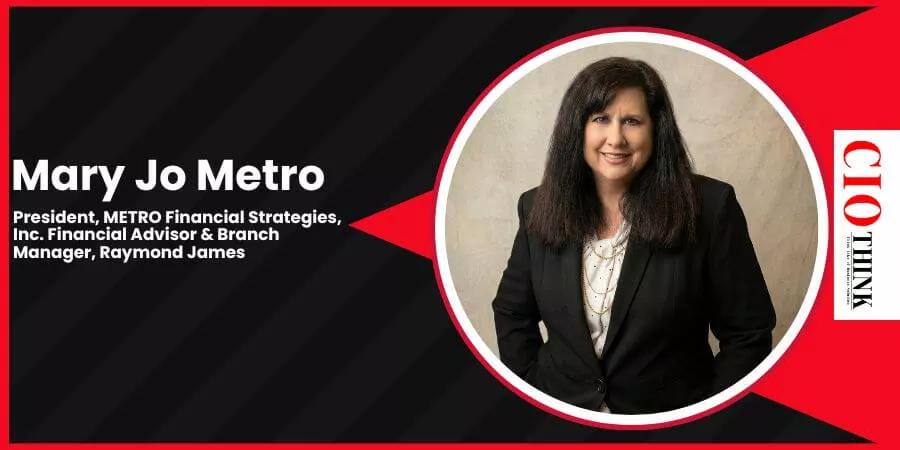Today, Asset Management has emerged to be one of the most vital elements of financial prosperity. As economic instability becomes the new norm and as markets move at rates unmatched in history, individuals and corporations demand more from their asset management strategies than simple protection from erosion. As we race towards 2025, the need for smarter, technology-enabled and incredibly agile asset management systems is revolutionising how investors think about long-term financial planning.
Beyond that, Asset Management is no longer the exclusive domain of the wealthy or for big business. Now, startups working to address this paradox are catching on not only with young professionals but also small businesses and contract laborers for whom asset management — the bedrock of financial stability at a time when retirement has become nothing less than existential — once seemed an abstract concern. That is a new age we are entering into — one in which wealth isn’t simply acquired but rather engineered.
Why Asset Management Is More Important Than Ever
Asset Management a Tool to Enhance Wealth
The point of asset management essentially boils down to one thing: helping individuals and organizations increase their monetary assets while lowering the risk of doing so. As a result of smart strategies, proper diversification and ongoing supervision, those who do manage assets can grow the value of their portfolios.
Also, asset management serves as an effective wealth multiplier. Rather than having money in a state of rest, it can be invested and put to work in stocks, real estate, mutual funds or ETFs, bonds or alternative investments. It is always about not just preserving capital, but earning consistently to build long-term financial security.
The shift from responsive to proactive opulence management
Investors Also Used To React I fancy that it used to be the case that most investors would wait for things to happen and then react. They reacted to market events after the damage had been done. Nowadays, the asset management is keeping his proactive thinking in focus. Investors are now able to anticipate economic direction, assess risks ahead of time and realign their portfolios with predictive analytics and global financial indicators.
This deliberate shift ensures that people and organizations not only mitigate losses, but seize opportunities, while maintaining their economic stability -regardless of fluctuating market cycles.
The Key Elements of Effective Asset Management
Portfolio Diversification
Diversification is a cornerstone of solid asset management. When investment is diversified, it’s not so vulnerable to market risks. A diversified portfolio includes both aggressive and conservative investments in order to attain a steady rate of return.
Risk Assessment and Mitigation
The successful asset/property management depends on the methodical risk research. All investments involve some form of risk, but careful planning and research can help to mitigate the loss. Money managers use tools and models to analyze hypothetical risks from inflation, market declines, geopolitical strife and economic turmoil.
Goal-Based Financial Planning
Goal-based planning is also a vital part of asset management. Investors on the other hand need to articulate their short term and long-term financial goals, which could be around retirement planning, wealth creation, expanding business or legacy creation. These objectives also influence investment decisions and enable asset managers to develop strategies that are appropriate toward achieving the desired results.
Continuous Monitoring and Rebalancing
Markets evolve constantly. As a result, the management of assets must be an active process to keep investment portfolios in line with financial needs. Rebalancing helps to maximize performance by altering the asset allocation when markets change.
Current Trends Shaping the Future of Asset Management in 2025
AI-Powered Investment Strategies
AI is transforming asset management. Today, an AI-powered approach has to process millions of data points, predict trends with a high degree of accuracy and execute investment decisions automatically.” Such technologies allow investors to adapt rapidly to market conditions and minimise human error.
Growth of Sustainable and ESG Investing
ESG investing has become a hot trend in asset management. Investors, more and more, are investing in businesses that exhibit ethical behaviour, environmental responsibility and sound corporate governance.” Not only does this approach benefit socially responsible companies, it also generates slower growth, long-term returns.
Digital Assets and Cryptocurrency Integration
Cryptocurrencies and digital assets have left the hipster fringes of finance. Today, you have investment managers that include assets such as Bitcoin, Ethereum, stable coins and other tokenized securities within diversified portfolios. Digital assets provide new growth opportunities, albeit that they need to be managed with caution given their volatility.
Smart Automation and Robo-Advisors
Robo-advisors have made asset management accessible by providing automated, cost-efficient investment plans. These are robo-advisers that use algorithms to assemble a custom portfolio according to risk preference and financial goals. That means millions of new investors have access to sophisticated wealth-building triggers.
How Asset Management Supports Business Expansion
Enhancing Corporate Financial Stability
Companies rely on asset management to keep them in control for the long term. Companies can increase operational efficiency and financial resiliency by managing assets like infrastructure, equipment, intellectual property, investments, and cash.
Supporting Expansion and Innovation
Asset management provides a hedge on present investments and capitalizes future development. Organisations are using data based management approaches on their assets in investing innovations, new technologies, entering new markets and developing capabilities. Such actions help the industries to stay competitive and resiliency for future.
The Human Element: Experience Roledex Why having Expertise Matters
Despite technology’s overwhelming presence in asset management human experience is still worth its weight in gold. Professional asset managers provide decades of experience, emotional intelligence and a sense for the market that algorithms can never quite replicate. They do this by providing customized strategies, risk informed advice and holistic financial counseling to echo an investor’s individual wants.
Constructing Your Own Asset Management Plan In 2025
Step 1: Clearly Define Your Financial Goals
Begin by defining what you mean to accomplish — short-term stability, long-term wealth, retirement preparation or business expansion.
Step 2: Know Your Risk Tolerance
There are different levels of financial risk that people are comfortable with simply by virtue of being investors. Before constructing your portfolio, honestly evaluate what you can afford to lose.
Step 3: Start Diversifying Early
Don’t put all your money in one type of investment to avoid getting hit when market conditions change.
Step 4: Embrace Technology
Leverage AI-powered platforms, investment apps and digital dashboards to inform decisions through analytics.
Step 5: Review and Rebalance
“Regular assessment is what enables you to make sure that you’re maximizing the return and keeping yourself aligned with your financial goals.
The Future of Asset Management
Really, we’re just at the start of something much larger But as we roll towards 2020 and beyond asset management is going to change faster than anything that ever happened in finance. With AI, automation, predictive analytics, digital currencies and the ESG investment principles transforming the investment terrain, investors have more opportunities — and responsibilities — than ever before.
The future belongs to those who learn how to adapt, innovate, and develop smart strategies. Those that adopt asset management as a way of life and not as an “alternative” will live with more security, liberty and progress.
Conclusion: Your Money, Your Plan, Your Destiny
Asset Management isn’t just buzzword, it’s a guide to infacning long-term success. Anyone can create a strong, resilient, and future-proof investment strategy with the right plan. The point: start now, stay connected and maintain commitment to your growth.
In 2025 (and beyond), wealth will not just go to the hardest workers – it will go to the smartest asset managers.







